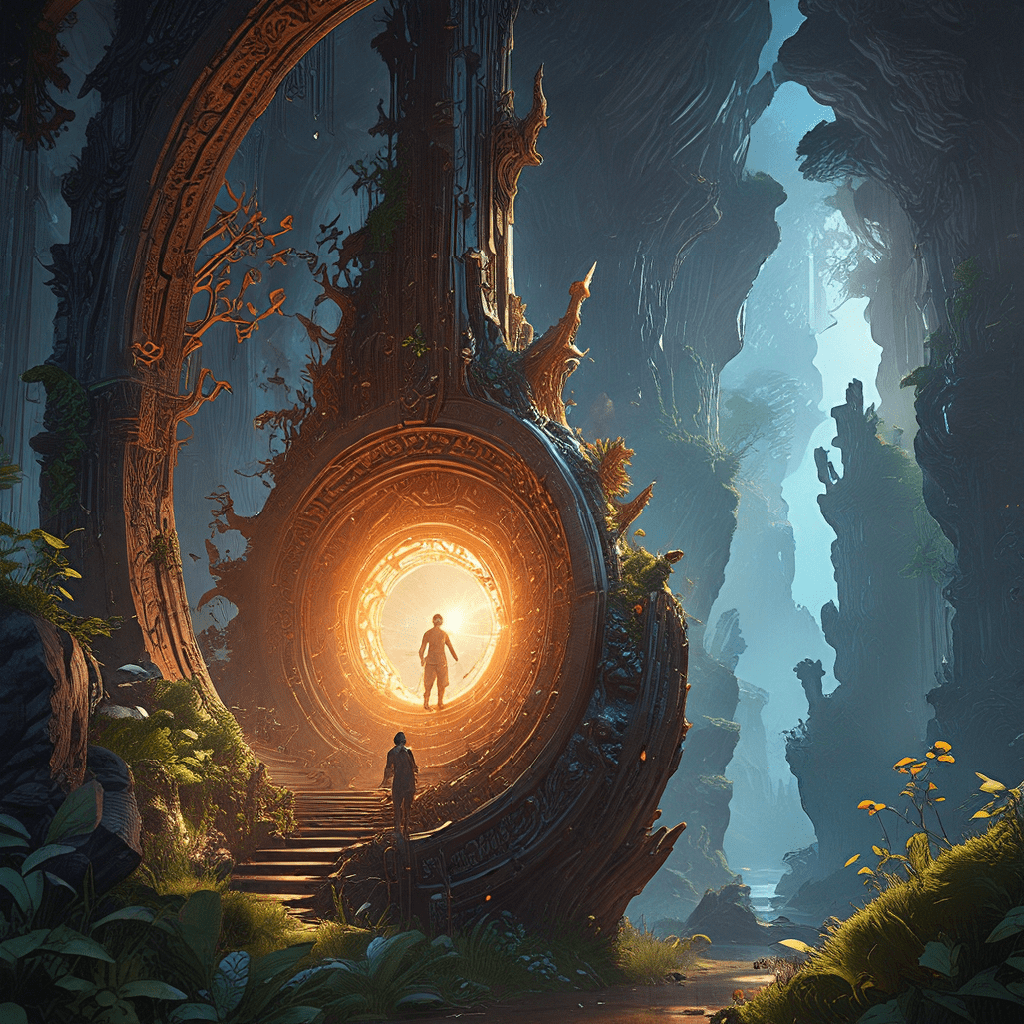The First Song: Exploring the Melody of Creation in Egyptian Mythology
In ancient Egypt, words and music were believed to hold immense power, shaping the very fabric of existence. This belief is reflected in the Egyptian creation myth, a story that intertwines the power of sound with the birth of the universe, gods, and humankind. The Egyptian creation myth speaks of a time before time, a realm of primordial chaos, where nothing existed. This chaos was then overcome by the emergence of order, represented by the creation of the world. This profound transition is often described as a musical act, a divine orchestration setting the stage for life and civilization.
1. The Power of Words and Music in Ancient Egypt
Ancient Egyptians deeply valued language and sound. They believed that words held the power to create, destroy, and transform. Speech was seen as a divine gift, a reflection of the gods’ ability to bring order to chaos. This belief is reflected in their creation myth, where the god Atum speaks the world into existence. Music played a significant role in ancient Egyptian rituals and ceremonies. It was used to honor the gods, to celebrate festivals, and to accompany funerary rites. Music was believed to have the power to connect humans to the divine realm, to appease the gods, and to influence the course of events.
2. The Cosmic Egg and the First Act of Creation
The Egyptian creation myth begins with a primordial state of chaos, represented by the watery abyss known as Nun. From this chaos emerged the Benben, a sacred mound believed to have been the first solid object in existence. The Benben is often depicted as a cosmic egg, symbolizing the potential for creation. From the Benben emerged Atum, the self-created god, who is often described as the sole creator deity. Atum emerged from the egg, bringing forth the first spark of order and life into the universe.
3. The Divine Song of Atum
Atum’s role in creation was not just physical but also vocal. He was believed to have created the world through his words, speaking the gods and the universe into existence. The creation of the world was seen as a divine song, a melodic act that brought forth order and harmony from chaos. Atum’s first act of creation was to bring forth Shu, the god of air, and Tefnut, the goddess of moisture. These two deities were born from Atum’s own essence, representing the fundamental elements of the universe.
4. The Importance of Rhythm and Harmony in Creation
Ma’at, the Egyptian concept of balance and order, is a central principle in the creation myth. It represents the interconnectedness of all things in the universe, emphasizing the importance of harmony and balance for the well-being of creation. Music is seen as a reflection of this cosmic harmony, a tangible expression of the interconnectedness of all things. The rhythm and structure of music symbolize the order and balance that govern the universe, mirroring the divine plan that created and sustains all things.
5. The Role of the Divine Ennead
Following the creation of Shu and Tefnut, Atum gave birth to the remaining eight gods who form the Ennead, the first group of deities in Egyptian mythology. These eight gods included Geb (the earth god), Nut (the sky goddess), Osiris (the god of the underworld), Isis (the goddess of magic and motherhood), Seth (the god of chaos), Nephthys (the goddess of mourning), Horus (the god of kingship), and Thoth (the god of wisdom and writing). The Ennead played a crucial role in shaping the universe, creating the sky, earth, stars, and the Nile River. Through their actions, they established the world as we know it, setting the stage for the emergence of humanity.
6. The Creation of Humanity
According to one version of the Egyptian creation myth, humankind was created from the tears of Ra, the sun god. This act highlights the connection between humans and the divine, emphasizing the sacredness of human existence. The Egyptian creation myth suggests that humans were created with a divine spark, a reflection of the gods’ own essence. This belief placed great importance on the role of humans in the cosmic order, emphasizing their responsibility to uphold Ma’at (balance) within the world.
7. The Importance of Myth and Ritual
The Egyptian creation myth was not just a story but a fundamental element of their culture and belief system. It provided a framework for understanding the origins of the world and their place within it. It also served as a guide for living a morally upright life, emphasizing the importance of maintaining order and harmony in the world. The creation myth was closely intertwined with ancient Egyptian rituals, which were designed to reenact the creation story and to connect humans to the divine. These rituals, often involving music, dance, and offerings, served to reinforce the belief in the power of creation and to affirm the cyclical nature of life and death.




